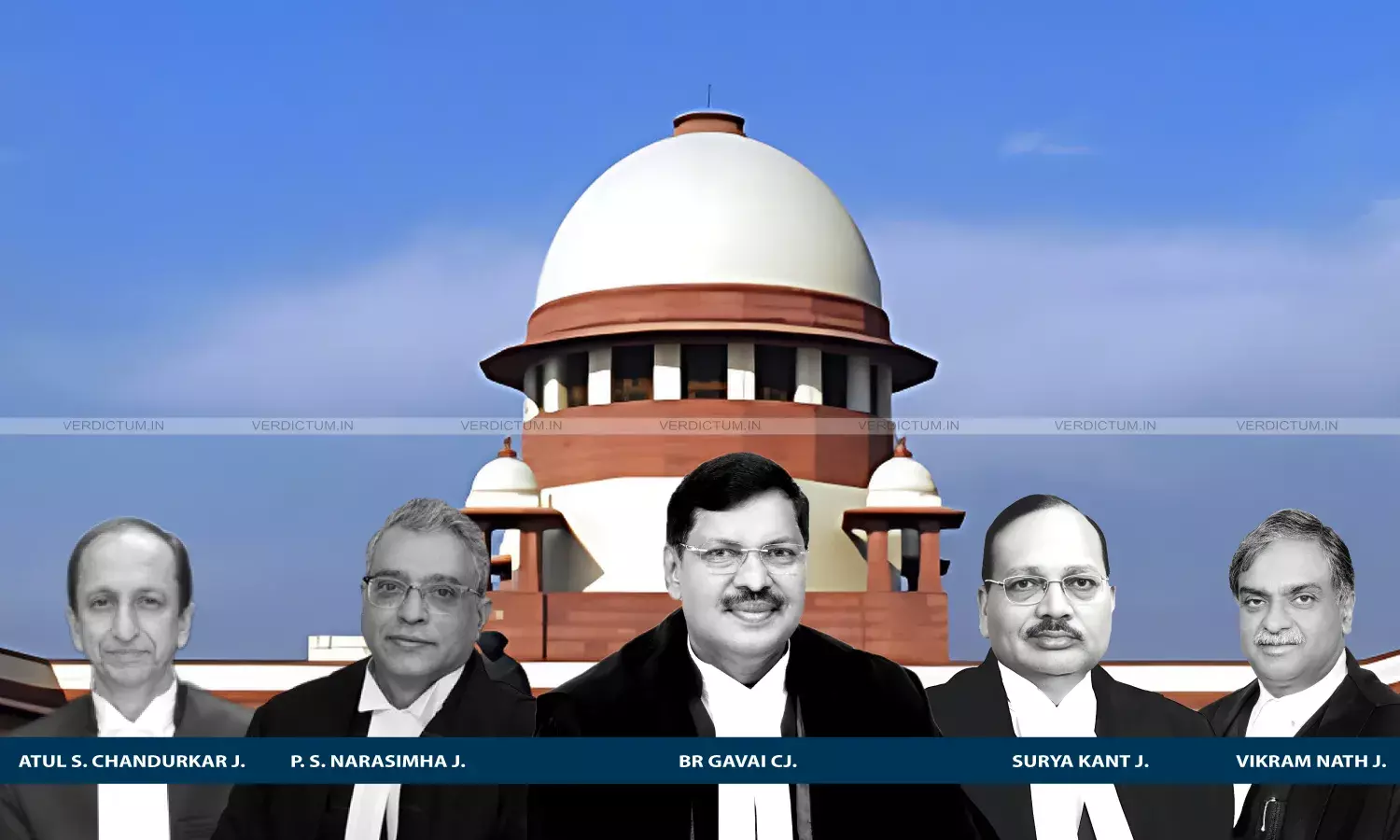Supreme Court To Start Hearing Presidential Reference On Fixing Timelines For Assent To Bills From August 19; Objection To Maintainability To Be Heard First
President Droupadi Murmu referred fourteen constitutional questions to the Supreme Court under Article 143(1), including whether judicial directions can fix timelines for action under Articles 200 and 201.

The Supreme Court today fixed the hearing schedule and directed the filing of written submissions in a Presidential reference seeking its opinion on whether timelines can be imposed for the Governor and the President to act on Bills passed by State Legislatures under Articles 200 and 201 of the Constitution.
A Constitution Bench comprising Chief Justice of India BR Gavai, Justice Surya Kant, Justice Vikram Nath, Justice P.S. Narasimha, and Justice Atul S. Chandurkar is hearing the matter.
At the outset, CJI BR Gavai stated, “We will fix timelines.” Senior Advocate Kapil Sibal suggested, “Four days this side, four days that side.” Senior Advocate K.K. Venugopal submitted, “I have filed application. My Lords will decide this issue and whether the reference should be returned.” The Chief Justice responded, “We will give you time, Mr. Venugopal...half an hour,” and directed the appointment of nodal counsels.
The Court recorded that written submissions shall be filed on or before August 12. “What we propose...file your submission on August 12. We will start on 19 August,” the CJI said.
The Bench noted that Advocate Aman Mehta shall act as nodal counsel on behalf of the Union and parties supporting the reference, and Advocate Misha Rohatgi shall act as nodal counsel for parties opposing it. “Initially, we will hear the parties on preliminary objection for an hour,” the CJI said.
The Court scheduled the hearing of the Attorney General and other parties supporting the reference on August 19, 20, 21, and 26. The parties opposing the reference will be heard on August 28, September 2, 3, and 9. Rejoinder, if any, would be heard on September 10.
Background
The Presidential reference under Article 143(1) of the Constitution arises against the backdrop of increasing constitutional friction between State governments and Governors over prolonged delays in granting assent to State legislations. The absence of fixed timelines and the discretionary conduct of constitutional authorities have led to legal uncertainty, prompting States to seek judicial clarity on the roles and limits of both Governors and the President under Articles 200 and 201 of the Constitution.
In State of Tamil Nadu v.Governor of Tamil Nadu (2025), a two-judge bench of the Supreme Court comprising Justices J.B. Pardiwala and R. Mahadevan held that a Governor must act within three months if withholding assent or reserving a Bill, and within one month when a Bill is re-enacted. The Court, invoking its powers under Article 142, declared that prolonged inaction by the Governor was “illegal” and directed that the ten pending Bills from Tamil Nadu be deemed to have received assent. The ruling marked the first judicial imposition of timelines on constitutional authorities acting under Articles 200 and 201, sparking intense debate over the limits of judicial authority and the separation of powers.
In a similar challenge, State of Kerala v. Governor of Kerala, the Supreme Court expressed concern over the Governor’s decision to refer several Bills to the President without furnishing reasons. The Court noted that such conduct appeared adversarial and lacked transparency, reinforcing the view that discretionary powers under the Constitution must be exercised with accountability.
In response to these developments, President Droupadi Murmu on May 13, 2025, referred 14 questions to the Supreme Court under Article 143(1), seeking an advisory opinion on matters central to India’s federal structure and constitutional design. The reference questions the validity of “deemed assent”, the scope of judicial review over the discretionary actions of Governors and the President, the permissibility of prescribing timelines through judicial directions, and whether such issues should have been decided by a larger bench under Article 145(3).
On July 22, 2025, the Court issued notice to the Union and all states.
Cause Title: In Re: Assent, Withholding Or Reservation Of Bills By The Governor And The President Of India (SPL.REF. No. 1/2025)


